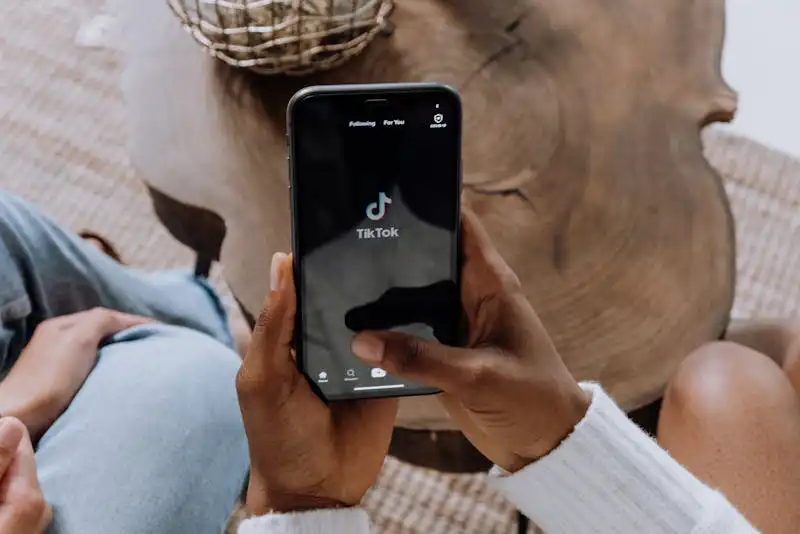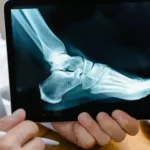In today’s digital age, social media has become an integral part of our lives. From sharing life updates and posting pictures to expressing opinions, social media platforms like Facebook, Instagram, Twitter, and TikTok have become our go-to channels for staying connected with friends and family. However, while these platforms offer a great way to stay in touch and share moments from our lives, they can also have unintended consequences, especially when you are involved in a legal matter such as a car accident case.
As Caruthers Law Firm in Houston, we have seen numerous instances where social media posts have adversely affected the outcome of a car accident case. This blog post aims to educate you on how your social media activity can negatively impact your car accident case and provide you with essential tips to protect yourself.
The Power of Social Media
Social media has a far-reaching impact, often beyond what we anticipate. When you post on social media, you are essentially sharing your thoughts, feelings, and activities with a broad audience. This audience isn’t limited to your friends and followers; it can extend to insurance companies, lawyers, and even opposing parties involved in your car accident case.
The Role of Social Media in Legal Cases
In legal cases, including car accident claims, social media posts can be used as evidence. Insurance companies and defense attorneys often scour social media profiles to find posts, photos, or comments that can be used to undermine the claimant’s case. Even seemingly innocent posts can be misconstrued or taken out of context to suggest that you are not as injured as you claim or that you were at fault for the accident.
How Social Media Posts Can Harm Your Case
1. Undermining Your Injury Claims
One of the most significant ways social media can harm your car accident case is by undermining your injury claims. If you are seeking compensation for injuries sustained in a car accident, the defense will look for any evidence that contradicts your claims. For instance, if you post pictures of yourself engaging in physical activities, attending events, or traveling, the opposing side may argue that your injuries are not as severe as you have claimed.
Example
Imagine you have suffered a serious back injury in a car accident and are pursuing a personal injury claim. However, a few weeks after the accident, you post a picture of yourself hiking or lifting a heavy object. Even if the activity was a rare exception and caused you pain afterward, the defense could use this post to argue that your injuries are exaggerated or fabricated.
2. Questioning Your Credibility
Your credibility is crucial in any legal case. If you make statements on social media that contradict your claims or testimony, it can severely damage your credibility. Inconsistencies between what you post online and what you state in court or to insurance adjusters can be used to cast doubt on your honesty and integrity.
Example
Suppose you claim to have experienced severe emotional distress and anxiety following a car accident. However, your social media posts depict you attending parties, laughing with friends, and generally enjoying life. The defense could use these posts to argue that your emotional distress is not as significant as you have claimed, thereby weakening your case.
3. Revealing Fault or Negligence
Social media posts can also reveal details about the accident that might be used to argue that you were at fault or partially responsible for the incident. Posts that discuss the accident, admit fault, or suggest risky behavior can be particularly damaging.
Example
If you post a status update shortly after the accident, saying something like, “I didn’t see the other car coming, totally my fault,” this admission can be used against you. Even if you later realize that the other driver was also at fault, your initial admission on social media can be a powerful piece of evidence for the defense.
4. Disclosing Settlement Information
It’s crucial to keep settlement negotiations confidential. Posting about settlement offers or discussions can jeopardize your case. Opposing parties can use this information to adjust their strategies or claim that you have violated confidentiality agreements.
Example
If you post about receiving a settlement offer and express dissatisfaction with the amount, the defense could use this information to argue that you are being unreasonable or to adjust their offer accordingly.
Tips to Protect Your Car Accident Case
To protect your car accident case from being negatively impacted by your social media activity, consider the following tips:
1. Set Your Profiles to Private
While setting your social media profiles to private won’t completely shield your posts from being discovered, it does add an extra layer of protection. Only your approved friends and followers will be able to see your posts, making it more difficult for the defense to access your information.
2. Be Mindful of What You Post
Think carefully before posting anything on social media while your case is ongoing. Avoid posting about your injuries, the accident, your recovery, or any activities that could be misconstrued. If in doubt, it’s best not to post at all.
3. Avoid Discussing the Case
Do not discuss any details of your car accident case on social media. This includes not only posts but also comments, messages, and discussions in groups. Anything you say can potentially be used against you.
4. Monitor Tagged Posts
Even if you are careful about what you post, others might tag you in their posts or photos. Monitor your tagged posts and ask friends to avoid tagging you in anything that could be problematic for your case.
5. Inform Your Attorney
Keep your attorney informed about your social media activity. If you think a post might be damaging, discuss it with your lawyer before taking any action. They can provide you with guidance on how to handle the situation.
6. Temporarily Deactivate Your Accounts
If you are unsure about managing your social media activity during your case, consider temporarily deactivating your accounts. This can prevent any accidental posts or tags from complicating your case.
The Legal Perspective: Why Courts Allow Social Media Evidence
Understanding why courts allow social media evidence can help you appreciate the seriousness of this issue. Courts generally allow social media evidence because:
1. Relevance
If a social media post is relevant to the case, it can be admitted as evidence. For instance, if the post contradicts a claim made by a party, it becomes relevant to the case’s outcome.
2. Public Nature of Posts
Social media posts, even those on private accounts, are considered to be in the public domain to some extent. When you post something online, you are sharing it with an audience, and courts can argue that this information is publicly accessible and therefore admissible.
3. Authenticity
Courts can authenticate social media posts relatively easily. They can be traced back to the user, and metadata can be used to verify the time and date of the post. This makes it difficult to dispute the authenticity of social media evidence.
Spanish Speaking Car Accident Lawyer in Houston, Texas
Spanish-speaking individuals can have a more difficult time seeking justice in their personal injury cases due to language barriers. This causes them to not take action against those who have left them with financial devastation and physical trauma. At the Law Office of Beverly R. Caruthers, our team refuses to let a language barrier affect your right to justice and compensation. If you or someone you love has been injured in an accident and is in need of Spanish-speaking legal advice, our team is here for you.
Protecting Your Rights and Your Case
Social media is a powerful tool, but it comes with responsibilities, especially when you are involved in a legal matter like a car accident case. By understanding how your posts can impact your case and taking steps to protect yourself, you can ensure that your social media activity does not jeopardize your right to fair compensation. It’s essential to remember that your online presence can be scrutinized by insurance companies, opposing counsel, and even the court, which can lead to unforeseen complications in your legal proceedings.
At Caruthers Law Firm in Houston, we are committed to helping our clients navigate the complexities of their car accident cases. Our expertise in personal injury law ensures that you receive comprehensive legal support tailored to your unique situation. We understand the nuances of how social media can affect your case and provide strategic advice to safeguard your interests. If you have been involved in a car accident and need legal assistance, our experienced team is here to guide you every step of the way. Contact us today for a consultation and let us help you protect your rights and achieve the best possible outcome for your case.
Our dedication to our clients extends beyond just legal representation; we strive to educate and empower you to make informed decisions throughout the legal process. Remember, what you post on social media can have lasting consequences. Be cautious, be informed, and when in doubt, seek legal advice. Your future and your case may depend on it. By partnering with Caruthers Law Firm, you gain an ally who prioritizes your well-being and works diligently to ensure that your legal journey is as smooth and successful as possible.
Caruthers Law Firm
Address: 4141 Southwest Fwy,
Suite 400
Houston, TX 77027
(713) 526-9557
View our Google Listing






